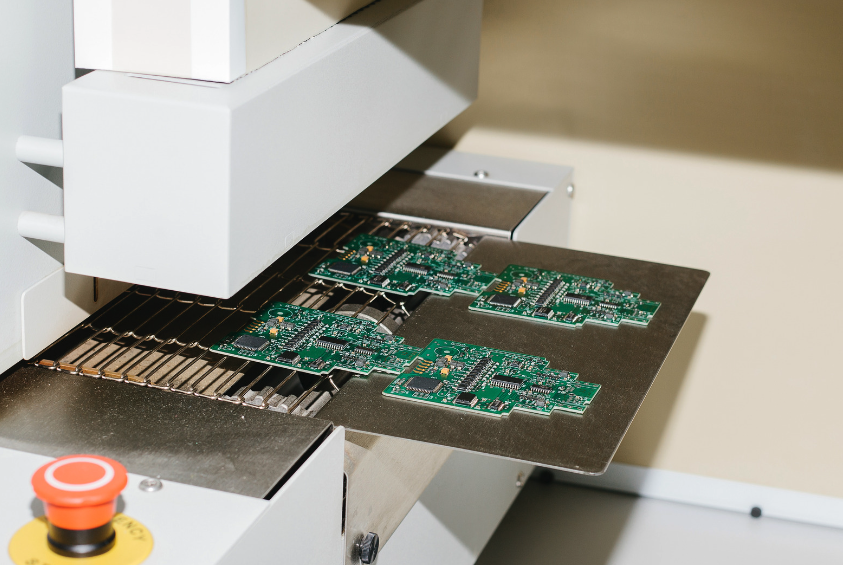Samsung Labor Strike Threatens Microchip Manufacturing

More from the Category
Samsung Electronics’ largest labor union announced an indefinite extension of their three-day strike, potentially causing disruptions to global chip manufacturing.
As a global leader in microchip manufacturing, Samsung generates $235 billion annually from its semiconductor division. In 2023, Samsung produced approximately 7.5% of the world’s semiconductors and currently dominates the global memory chip market, manufacturing 42.8% of all DRAM (dynamic random-access memory) chips.
Key Factors Driving the Samsung Strike
Since January, several rounds of talks between the union and management have failed to find a compromise. As a result, the union has put forth specific demands to address their concerns.
The National Samsung Electronics Union demands pay raises, transparent performance-based bonuses, and an extra day off yearly. The union has claimed that over 6,000 members are participating, with more than 5,000 of those members coming from the critical semiconductor division.
Historically, Samsung maintained a no-union policy and engaged in union-busting activities worldwide. However, in May 2020, Vice Chairman Lee Jae-young apologized for these practices. In August of 2021, Samsung signed its first-ever collective agreement with its labor union, including 95 clauses addressing union rights and labor-related issues.
This is the first indefinite strike in Samsung’s history, highlighting the company’s lack of preparedness to address labor issues with its workforce. Additionally, it marks a significant turning point in Samsung’s labor relations, particularly given its past no-union policy.
Potential Impacts on Microchip Manufacturing

Although Samsung has claimed that chips production has not been disrupted, the situation remains uncertain. However, concerns persist as the union intensifies its efforts. The union is primarily focusing on less-automated manufacturing lines, particularly the 8-inch wafer line with plans to extend its influence to high-bandwidth memory (HBM) chips, which are crucial for powering AI. This threat to HBM chip production could hinder Samsung’s competitive edge in advanced technological sectors against its rivals.
Eight-inch wafers are typically used for ‘legacy products’ like power semiconductors or chips for home appliances. Unlike Samsung’s more automated semiconductor lines designed for high-tech devices, the 8-inch wafer foundry lines are less automated, giving the union greater leverage in its actions against management. A strike impacting HBM production lines could be especially damaging as the company is currently expanding its presence in the HBM market due to rising demand for AI chips.
This reliance on manual labor is a significant factor in the current situation. Many South Korean companies, including Samsung, have adopted factory automation for production. However, Samsung still relies heavily on a labor force for microchip manufacturing, making it almost inevitable that the strike will impact chip supply.
“We confirmed that the production of chips was disrupted during the first round of strikes, and the management will regret this” – The National Samsung Electronics Union
Global Implications

This ongoing union strike poses significant global implications for the microchip supply chain. Given that Samsung is the world’s largest maker of memory chips, any disruptions in production could impact global supplies, leading to undersupply and shortages. If the strike persists or escalates, it may lead to price increases for memory chips and product delays if chips production is significantly affected. As a result, this strike could ripple through the semiconductor supply chain and affect chip supply and prices globally.
Looking Ahead
The ongoing Samsung strike presents several potential resolutions. Samsung Electronics has stated that the company ‘remains committed to engaging in good faith negotiations with the union,’ suggesting a potential for compromise. However, it does not appear likely that the union will back down. They believe that the longer the strike lasts, the more likely it is that management will yield to their demands, and they are confident in their eventual victory.
Management is concerned that yielding to the union’s demands too easily could set a precedent for similar actions in the future. This situation can potentially significantly change Samsung’s corporate culture, challenging its traditional hierarchy and top-down leadership. With strong global competition in the semiconductor, electronics, and mobile markets, this strike threatens Samsung’s company culture and international competitiveness and poses significant risks to microchip manufacturing.
Preparing for Uncertainty with Microchip USA
Although the outcome of the strikes is uncertain, there are proactive steps you can take to prepare for disturbances to the microchip supply chain. At Microchip USA, we partner with you to help your company thrive in a complex and ever-changing world. Our experts continually monitor the market and stay ahead of industry trends to ensure you have the parts you need when you need them. Through our extensive network and expertise in supply chain management, we help you navigate disruptions and maintain your production schedules.
Partner with Us!